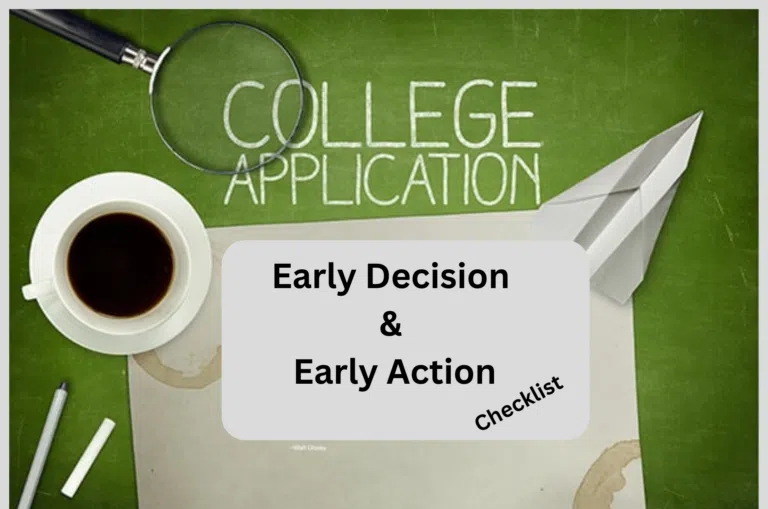It can be very easy to be seduced by the idea of going to college, particularly one of the great colleges and universities worldwide. The good news is that the dream is increasingly becoming a reality for those that aspire to this goal but achieving it is not always straightforward and can sometimes come as a shock.
In this article, I want to help anybody considering applying to a US college, and their families think about some of the hard questions that will need to be answered on their journey toward college and university.
Academics
People have all sorts of motivations for applying to college. It might be the prospect of exploring an area of interest in more detail or the freedom to develop into the adult you want to be. Whatever your motivations, for colleges and universities, it is about you as a student, and while US colleges look at more than just your grades, how you perform at school is an essential element of your application.
Not all colleges expect the same academic performance; top colleges will expect a higher academic achievement, so you must take a step back and look at how you have performed over the last few years. The good news is that, in most cases, an institution will match your academic performance, but that might be different from the college of your dreams.
Top colleges, like the Ivy Leagues, will expect you to have averaged A’s across the four years of high school. So, if an Ivy League is your dream, look at the grades you have been getting; if they are not A’s, then ask yourself if you can and are willing to do the work needed to turn them into A’s.
If you are not that A student, then by all means, still apply, if that is your dream, but also make applications for colleges that better reflect the grades you are achieving. We would advise that at least half of your applications should be made to what we call target institutions. These are ones that broadly align with your academic performance. If you don’t get the grades you expect, you should include at least one safety college.
Another question you should ask yourself is, ‘are the subjects you are good at the subjects that are important for what you want to study or indeed work in?’ Over my career, I have met many young people who have a view about what they want to study that is incompatible with their academic strengths. For example, they might wish to study mechanical engineering at college, but maths is not a strong subject for them, and they dislike physics, both integral subjects for what they want to study. Too often, these people drop out of their studies because they can’t cope with the work or it just does not interest them enough. Fortunately, switching from one major to another in the US is often possible, but a hard, realistic assessment of their strengths can help you avoid that.
Occasionally students feel pressure from family or friends to aim for a particular study area. It is essential to recognize this pressure and for you, the student, to own the decision about what you do at college. Try to understand the feelings family and friends have about your future, try to help them understand why you believe your choice is right for you and your dreams, and realize your concerns about pursuing the major they would prefer you to follow.
Asking yourself these questions is not always easy; it can be hard to refocus your dreams if the reality does not fit. However, the ability to reflect on who you are is an important skill to master and will help you to make better decisions throughout your life.
Family discussions
While you will be the one attending university, the support and encouragement of your family should be an essential consideration. While you will have your dreams about going to college, your family will likely have dreams for you as well. Hopefully, those dreams will match yours, but that is not always the case. There have been occasions where the parents of students we have worked with have wanted their son or daughter to attend a particular college or sometimes go to a college near family members who can offer support.
Another important area to have an early conversation with your family about is cost. Irrespective of where you go to college, it is expensive, so talk to your family about what the family can afford. Sometimes we see students who have the potential to be accepted by one of the highly selective private colleges in the United States but are not able to afford the high costs that can be required. In those circumstances, it might be better to focus on slightly less selective colleges that will appreciate what you bring to the college community and provide you with scholarship money to make it more affordable. This can be a particularly beneficial strategy if you intend to go onto one of the professional programs like medicine or law.
One of the most common areas where we see differences between parents and students is what to study. Some parents will put a value in studying a particular major, typically in the STEM areas, but you, the student, might want to pursue your interest in the arts or humanities. Understanding these tensions can help you when considering your choice of college. For example, you could look at colleges that will provide the opportunity to follow a double major, one with more of a STEM focus and a second in the areas you want to follow.
Planning
Another consideration is that you should try to be realistic about the amount of time you have or can put into applying to college.
Applications to top-tier colleges take time.
A student at the end of Gr 11 only has six months before the application round ends; during that time, in addition to all of the work you are doing for the application, you will also have to keep on top of your school work and continuing to work on your extracurricular activities. So when you are starting the process of building your application profile is essential. The earlier you start, the better.
Even if you are starting the process early, you are still likely to struggle to do all of the things you are used to while completing the activities and working to build your profile. Are you willing to spend less time playing your favorite sport, hanging out with friends, watching television, or whatever it might be? Successful students find they have to manage their time well if they are going to accomplish everything they want to. Are you willing to make the sacrifices needed to achieve your goals?
None of this is said to try and put you off following your aspirations of college; far from it; we want you to succeed but asking these tough questions is part of the journey.
There will be bumps on the road, times when things don’t go how you expect, maybe you don’t get the grade you expect, or a research experiment fails; often, people will not be accepted by the colleges they most want to attend.
All of this is normal, and you should expect to have disappointments along the way, but there are rarely no options remaining open to you. So be flexible and open to opportunities, and you will have a great future ahead.
Good luck!







